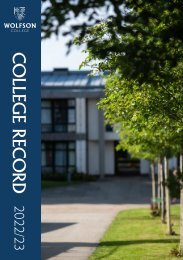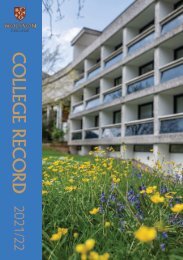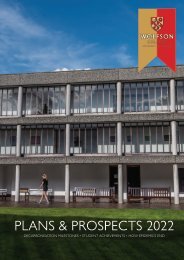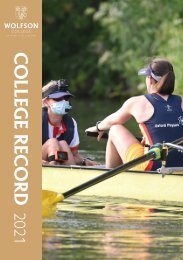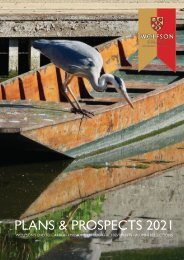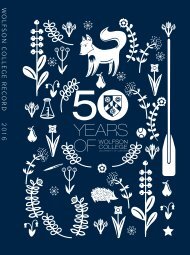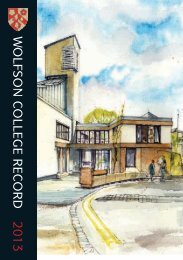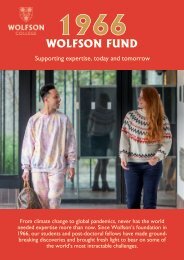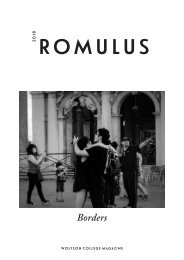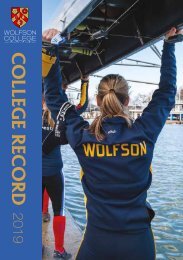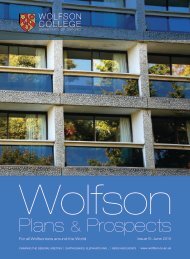You also want an ePaper? Increase the reach of your titles
YUMPU automatically turns print PDFs into web optimized ePapers that Google loves.
with the institution, and his influence there was lasting. So happy, energetic and<br />
successful was he that his term was extended for two further years, until 1993.<br />
Even then his career was far from over, for no scholarly ‘retirement’ could have<br />
been more productive, yet he never fully adapted to a typewriter, let alone to a<br />
word-processor; for him, his firm and distinctive handwriting sufficed. His many<br />
administrative distractions had by now made editing more feasible than authorship,<br />
and his academic interests had advanced to Edwardian Britain, where his knowledge<br />
became encyclopaedic. He and his wife Eleanor, who had studied English at Lady<br />
Margaret Hall and whom he had married in 1949, were now a powerful editorial<br />
team, and they jointly published a meticulous edition of H.H.Asquith’s Letters<br />
to Venetia Stanley in 1982. Michael as political historian had always interpreted<br />
‘politics’ broadly, and the Brocks were the ideal editors, never obtrusive, always<br />
on hand when needed, and erudite on a remarkable range of topics – informing<br />
readers, for instance, that a cleek ‘corresponded roughly to the number 2 iron of<br />
a modern golf bag’, that a ‘Collins’ is ‘a letter of thanks to a hostess’, and that in<br />
1911 a hobble skirt ‘was liable to impede such actions as boarding a bus’. Michael<br />
simultaneously undertook the huge task of co-editing with Dr.Mark Curthoys the<br />
1,890 pages of volumes 6 and 7 in the History of the University of Oxford (published<br />
in 1997 and 2000, respectively); to them he contributed three substantial chapters<br />
as well as volume 8’s judicious concluding chapter on ‘the University since 1970’.<br />
Not content with this, the Brock consortium moved forward to editing Margot<br />
Asquith’s diaries, and well into his eighties Michael was often seen at a desk in<br />
the Bodleian Library, his bird-like frame now somewhat bent and seemingly<br />
ever slighter. His wealth of insight and learning was lightly worn and elegantly<br />
deployed, and against all prediction, the proofs of Margot Asquith’s Great War Diary<br />
1914-1916, edited by ‘Brock & Brock’, were in Michael’s hands shortly before he<br />
died. O.U.P. published it in June <strong>2014</strong>, at the same time as re-issuing the Letters to<br />
Venetia Stanley in paperback.<br />
Brock was one of the distinctive and well-known personalities once seemingly<br />
prevalent in Oxford, but now rare – a part-time bureaucrat who was far from<br />
faceless. On Hebdomadal Council from 1965 to 1976 and from 1978 to 1986, he was<br />
a Pro Vice-Chancellor from 1980 to 1988. He was a late recruit to that small elite<br />
32



